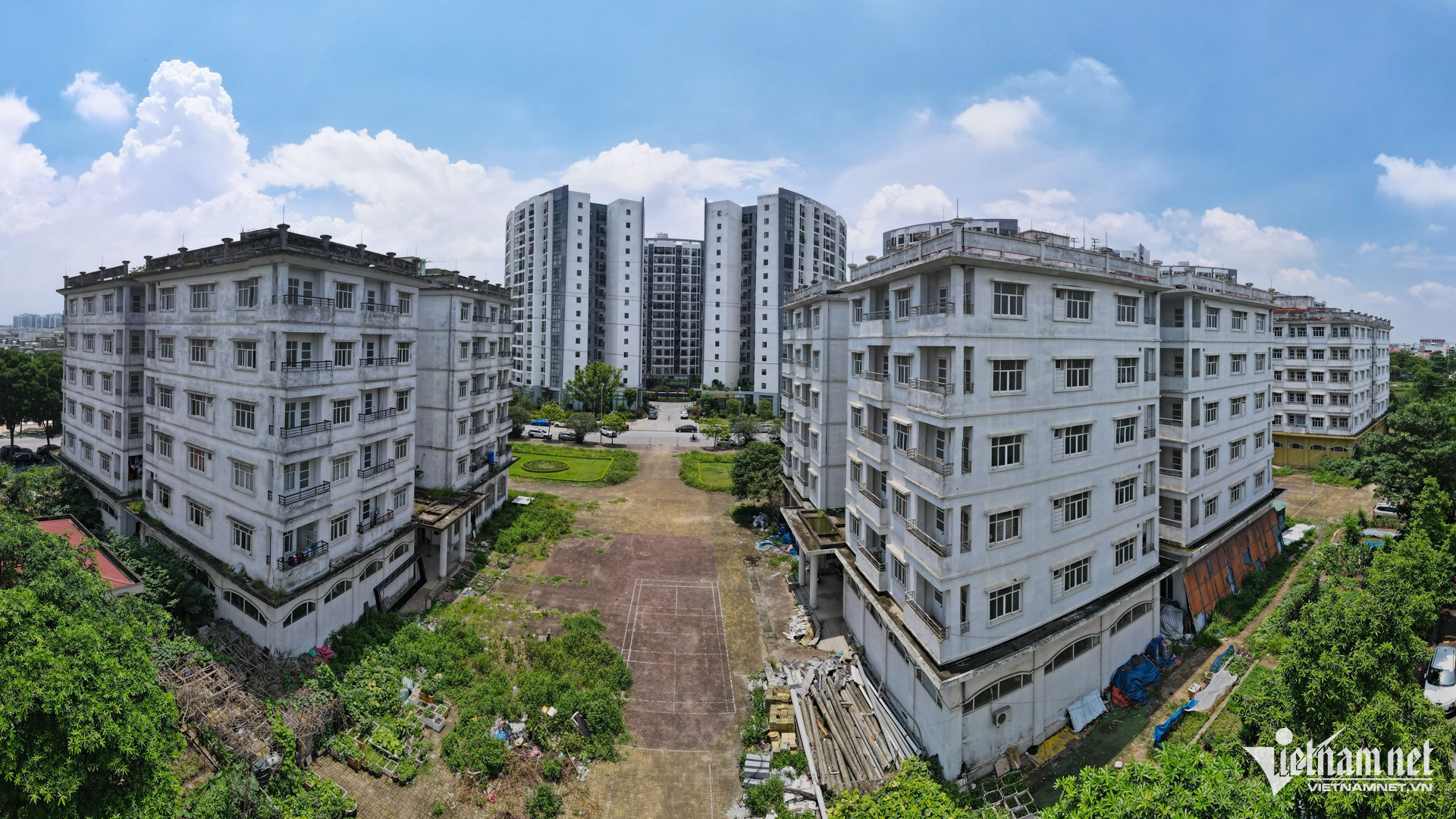
Hoang Hai, director of MOC’s Housing and Real Estate Market Management Department, said before the 2014 Housing Law, resettlement involved compensating households that had to leave their homes with land plots in other sites or directly building resettlement houses for them.
Since the 2014 Housing Law took effect, one more resettlement method has been applied – buying commercial or social housing products in real estate projects in special, first- and second-class urban areas. This allows the state to not have to build resettlement apartments for the households.
Hai said that when reviewing the implementation of the 2014 Housing Law, state agencies found that in some cases, resettlement housing projects (which took shape before the 2014 Housing Law took effect) had not been allocated for use and there had been no solution to the problem, which caused frustration for people and a waste of land resources to the state.
There are a number of reasons for this. Many people don’t have demand for resettlement apartments, or they are low income earners who have to change their homes and their new living conditions are not favorable for them to do business. As a result, they don’t have enough money to make payments for houses or resettlement land.
This shows that current policies on resettlement only focus on providing new accommodations, and not on social welfare that allows people to live well in new areas. The people who have to leave their homes to make room for development projects cannot receive support, such as vocational training, jobs, and a good business environment, to be able to settle down in the new places.
Hai also pointed out that many resettlement houses are low quality, lack basic amenities, use low-quality materials and have unreasonable designs, and the execution could not meet standards. At some projects, houses have degraded after 10 years of use, and there is no fund for maintenance.
“The low quality of resettlement products affects safety for residents and reduces the value of apartments,” Hai said.
Another problem is the bad forecasting about demand for resettlement products and the poor resettlement housing planning, which is not based on capital mobilization and gentrification projects.
In most cases, resettlement housing products are not well-located and are far from the central area and inconvenient to use public transport, and technical and social infrastructure is not good enough.
Also according to Hai, the regulations of the 2014 Housing Law on the responsibilities of local authorities at different levels in resettlement housing management and arrangement are not clear, which explains why the work has not caught appropriate attention.
As the policies on compensating households have changed, more households would rather receive compensation in cash and build or buy housing themselves based on their financial capability and condition than move to resettlement areas prepared by the state.
Changes to laws needed
Prime Minister Pham Minh Chinh at a recent meeting with ministries and branches discussing solutions to the problems in social housing, requested MOC to draw up regulations on changing land use purposes in resettlement areas into social housing to speed up the government plan on developing 1 million social housing units.
Hai said the current housing laws, including Decree 99 released in 2015 that guided the implementation of the 2014 Housing Law, consisted of provisions on the conversion of housing projects. However, it didn’t give detailed guidance about procedures.
In order to solve the problem of resettlement apartments being left idle, the newly released 2023 Housing Law shows detailed regulations related to resettlement housing, including development, arrangement, quality management, and function.
Decree 95 dated 2023 with detailed regulations on steps and procedures to convert resettlement apartments into social housing apartments provides a legal framework to implement the conversion.
EZ Property CEO Pham Duc Toan estimated that converting resettlement houses to social housing is a good solution which could help handle the 100,000 idle resettlement housing units in Hanoi and HCM City in the immediate time.
Meanwhile, Dinh Trong Thinh, a respected economist, said that it is necessary to classify idle resettlement apartments into different groups based on their problems (low quality, lack of infrastructure, disadvantageous positions, etc) and design solutions suitable to each group.
Hong Khanh